|
|
| |
| |
 |
DAnubeparksconnected - 1st DANUBE Volunteers Day
|
| |
|
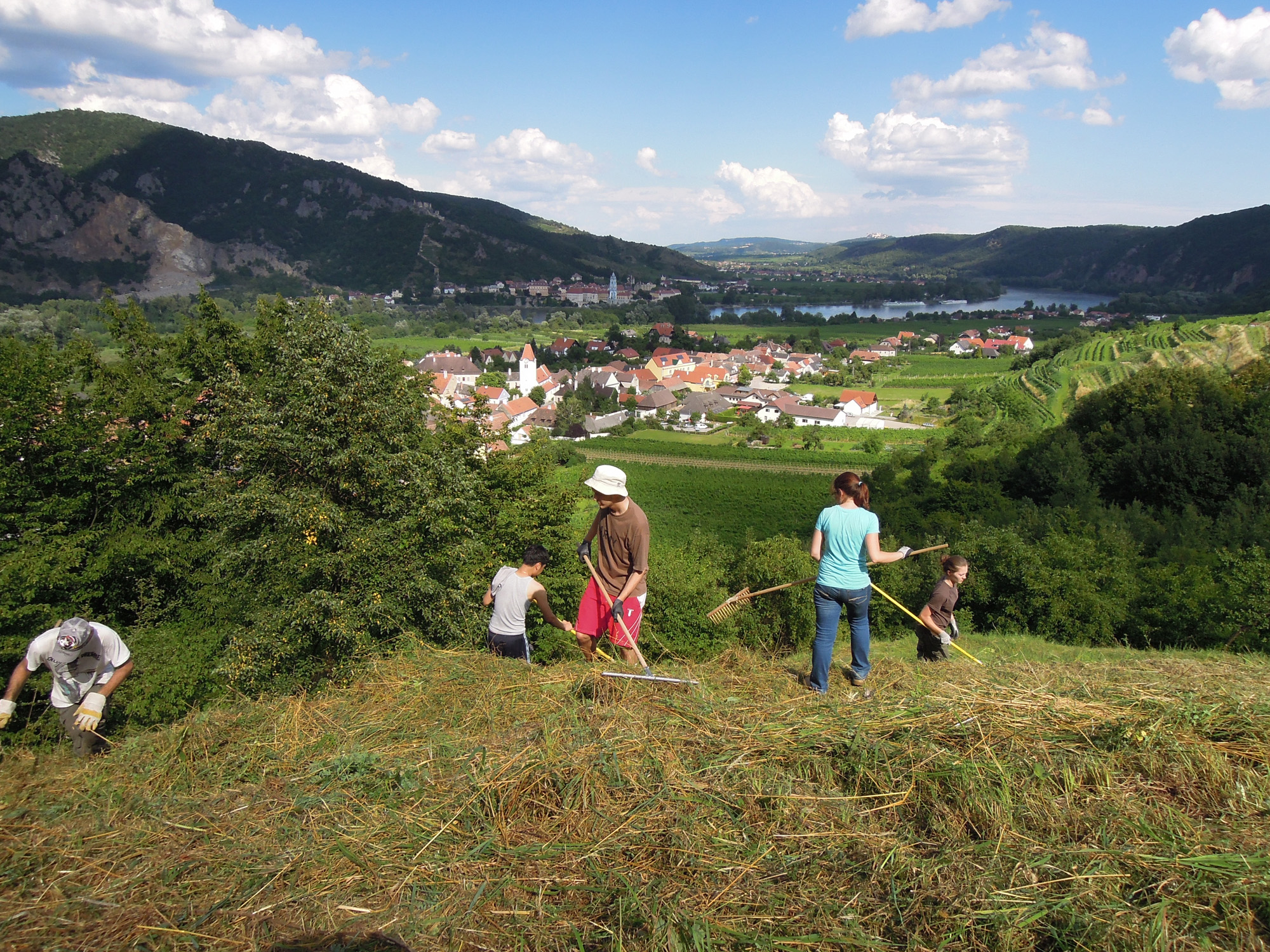
Photo: Weltkulturerbe Wachau
|
|
| |
 |
With your Help Towards Ecological connectivity
|
Since ten years, the Danube River Network of Protected Areas boosts strategic cooperation for nature conservation along the Danube.
Rivers are more than wetlands! With funding of the Interreg Danube Transnational Programme, the DANUBEparksCONNECTED project sets new initiatives to strengthen habitat connectivity also for dry habitats. With the help of volunteers and your participation, these valuable sites will be managed and restored.
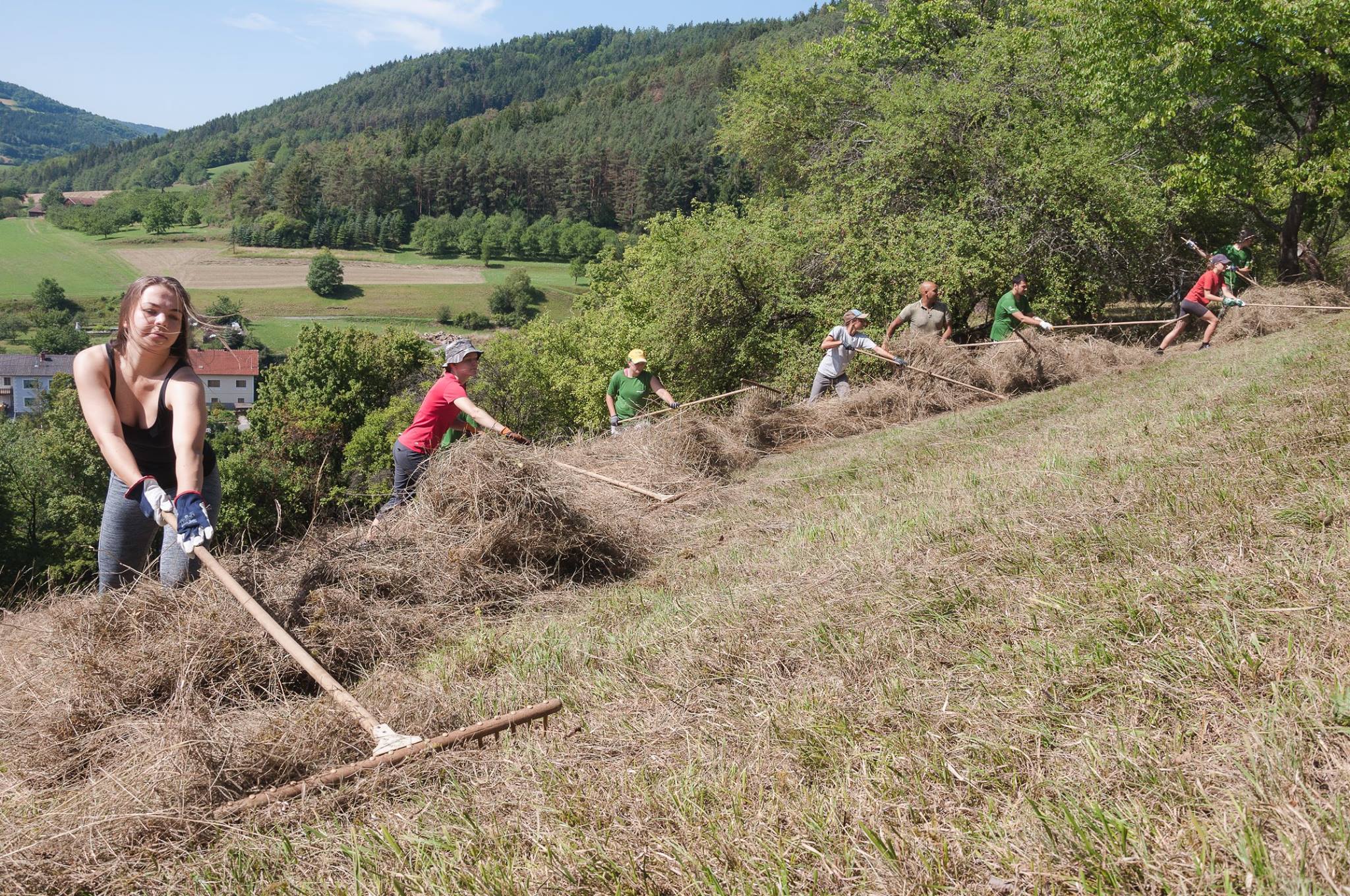 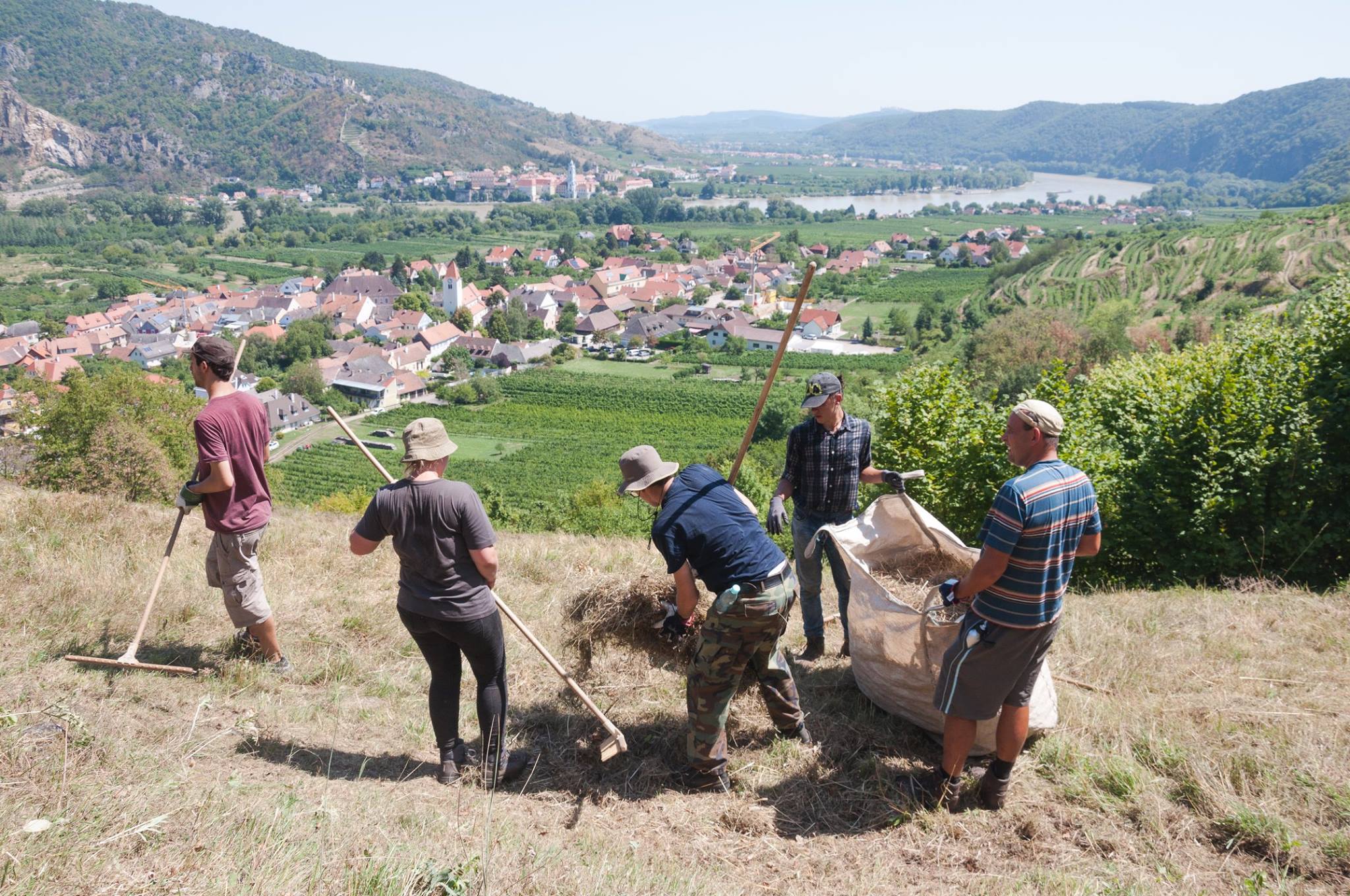
Photos: Weltkulturerbe Wachau
|
| |
 |
You can make a difference!
Join the 1st Danube Volunteers Day
|
|
Raising the awareness for the importance of our natural treasures, learning about valuable dry habitats, and sharing the feeling that each single hand creates an added value and that each single person can contribute significantly to preserve natural habitats - this are the aims of the 1st Danube Volunteers Day.
Join the field actions in the Danube Protected Areas: also in your region you will find an event where you can be part of this Danube-wide initiative! Contribute with your (wo)men-power, come with your family, with your friends and your company. Also teams of partner projects are more than welcome. When working for nature, you will get deep insight information by the experts of the Danube Protected Areas who have the first-hand know-how in the management of these natural treasures in dry habitats along the Danube.
Find the event in your region and get in contact!
Between 24th August and 21st October, 14 events in nearly all Danube countries will take place to manage and to restore valuable dry habitats. The more people will join, the more hectares of dry meadows, Heisslands, block fields and habitats for rare characteristic species can be preserved! We will keep you updated about the results and effects of our joint work! Follow us on Facebook!
|
|
| |
 |
1st Volunteers Day successfully started in Kopacki rit
|
| |
|
At the 10 years anniversary festival in Kopacki rit (Croatia), the DANUBEPARKS team worked actively to promote local and origin fruit trees as important habitat structures in semi-dry grasslands. This fruit tree alley of a length of 6 km does not only enrich the local habitats, soon, it also should spend shade for the local community when going along and visiting this site for recreation.
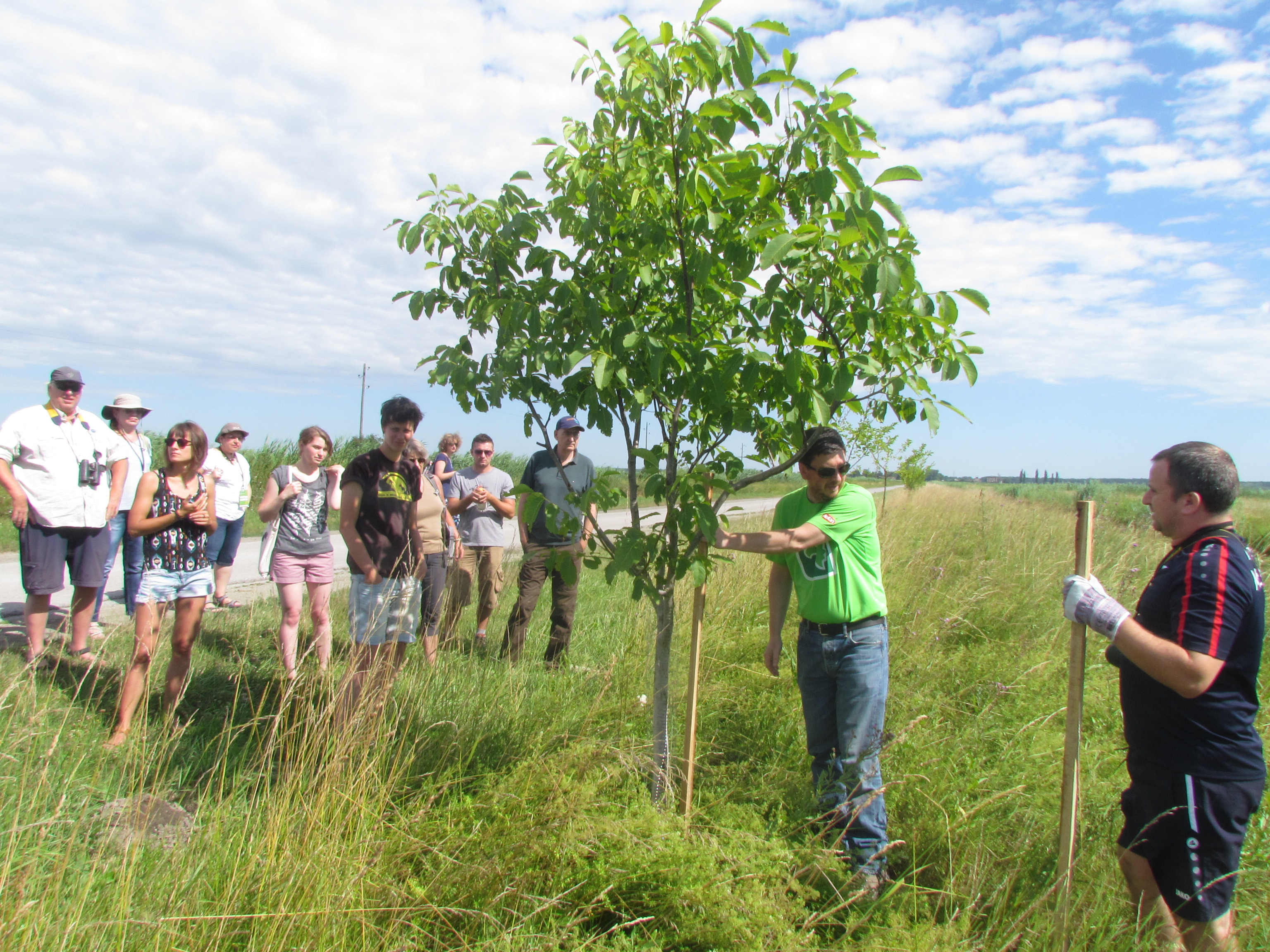 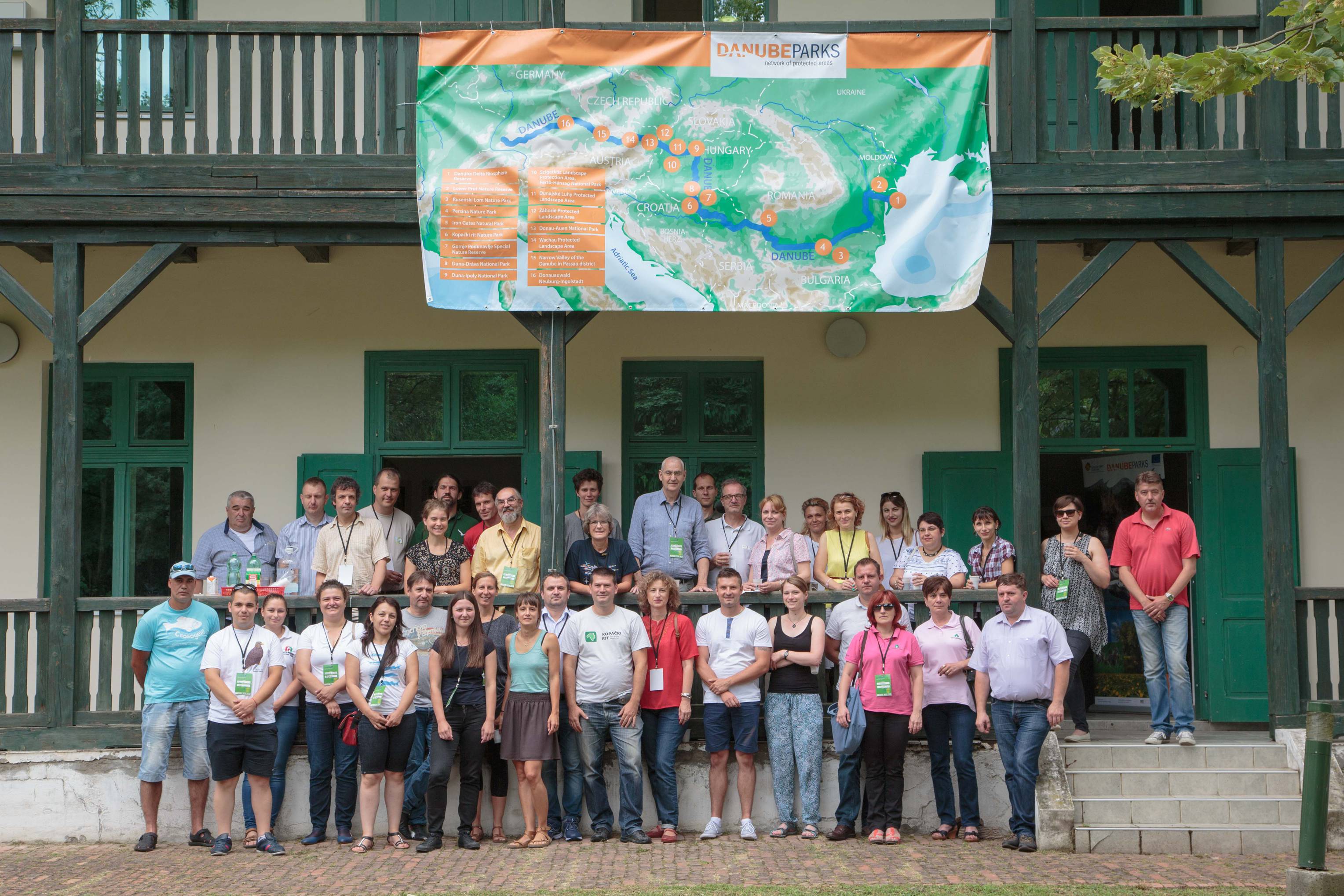
Photos: JUPP Kopacki rit
More Information |
|
| |
 |
24th August: Wachau, Austria
International Volunteers active for Danube Dry Habitats
|
| |
|
Since many years international volunteers come to the special and unique scenery of the UNESCO World Heritage site – the Wachau valley, to work together on the preservation of important and rare species of dry habitats. For the 1st Danube Volunteers Day, everybody is invited to join.
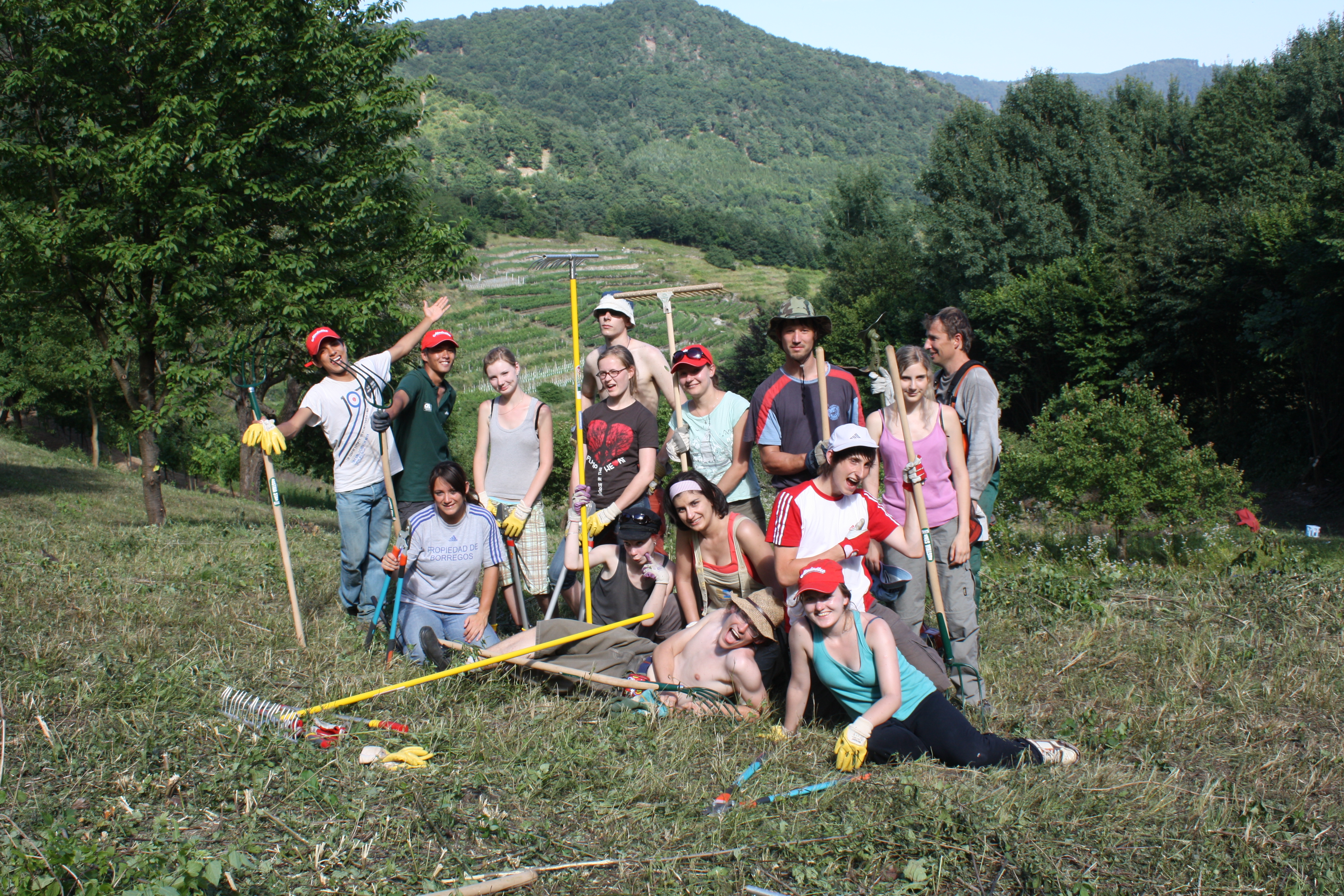 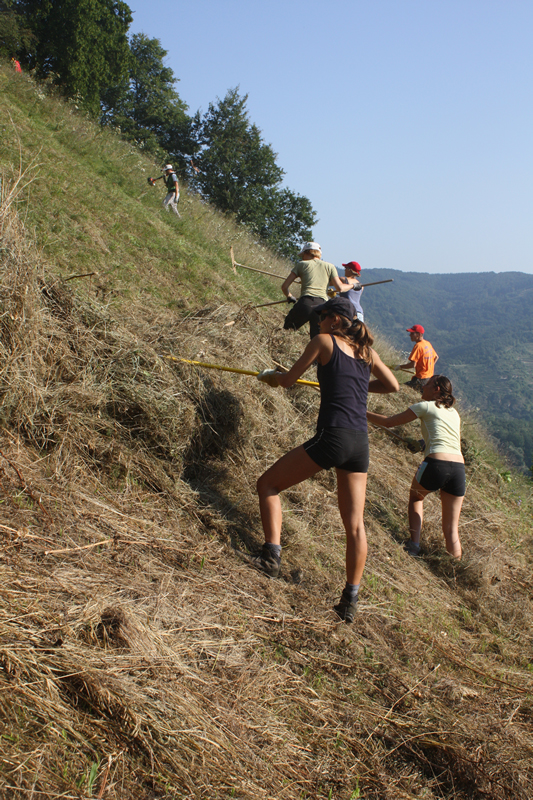
Photos: Weltkulturerbe Wachau
Interested to join? Contact our colleagues from Weltkulturebe Wachau!
|
|
| |
 |
8th september: Persina Nature Park, Bulgaria
|
| |
|
Persina Nature Park will tackle the problem of waste on their dry habitats and wetlands. Big amount of plastic bottles and other waste covers the valuable wetlands. Together with numerous helping hands from pupils and school groups some hectares can be cleared and a visible sign will be sent: rubbish is to be given into the bucket and not into the river!
Interested to join? Contact our colleagues from Persina Nature Park!
|
|
| |
 |
16th september: Passau District, germany
|
| |
|
The District of Passau has been actively engaged in the field of nature conservation for many years and even built the environmental education centre “Haus am Strom”. Volunteers get the chance to learn a lot about nature conservation and management of dry habitats while helping to protect local and rare species.
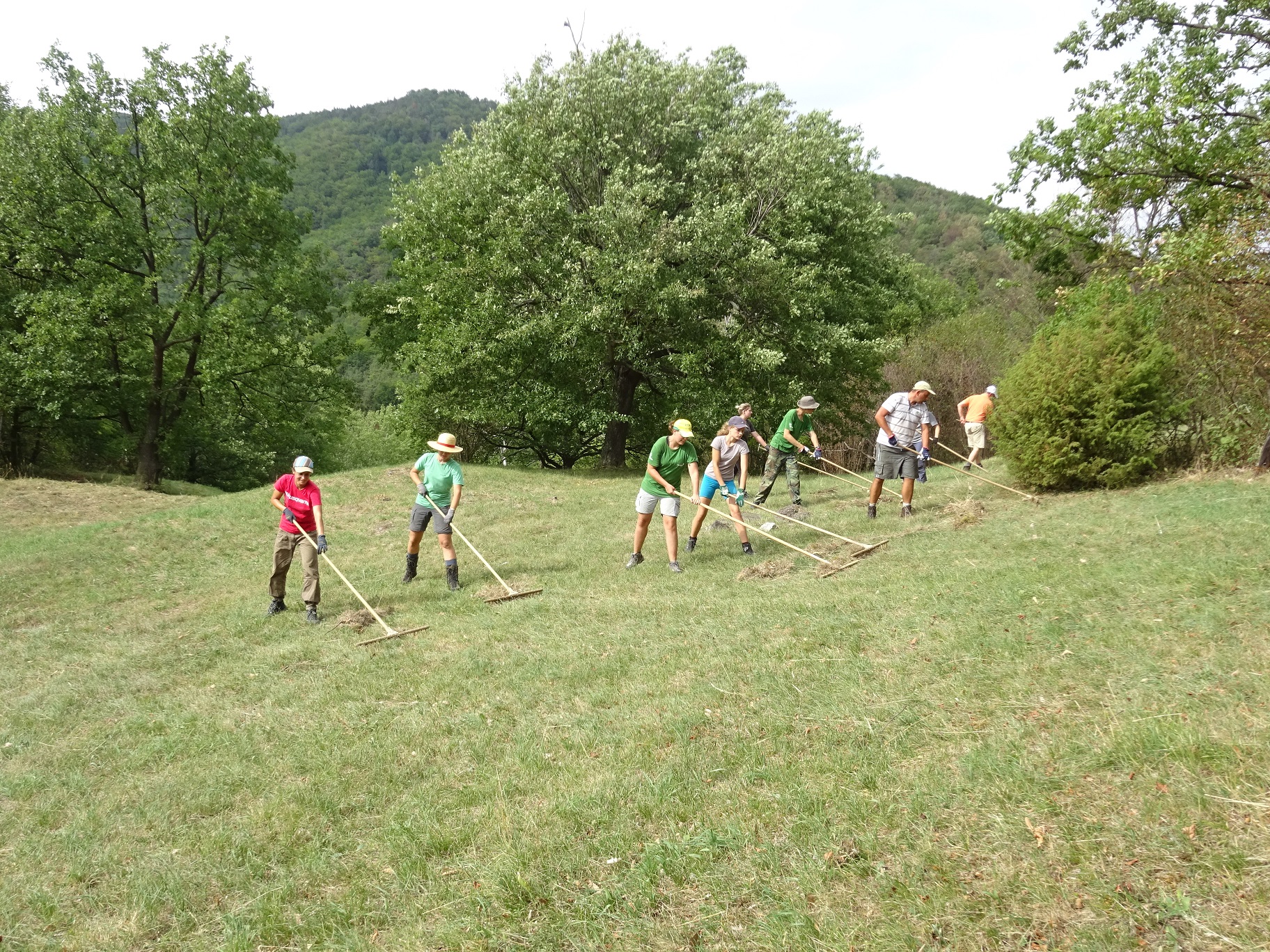 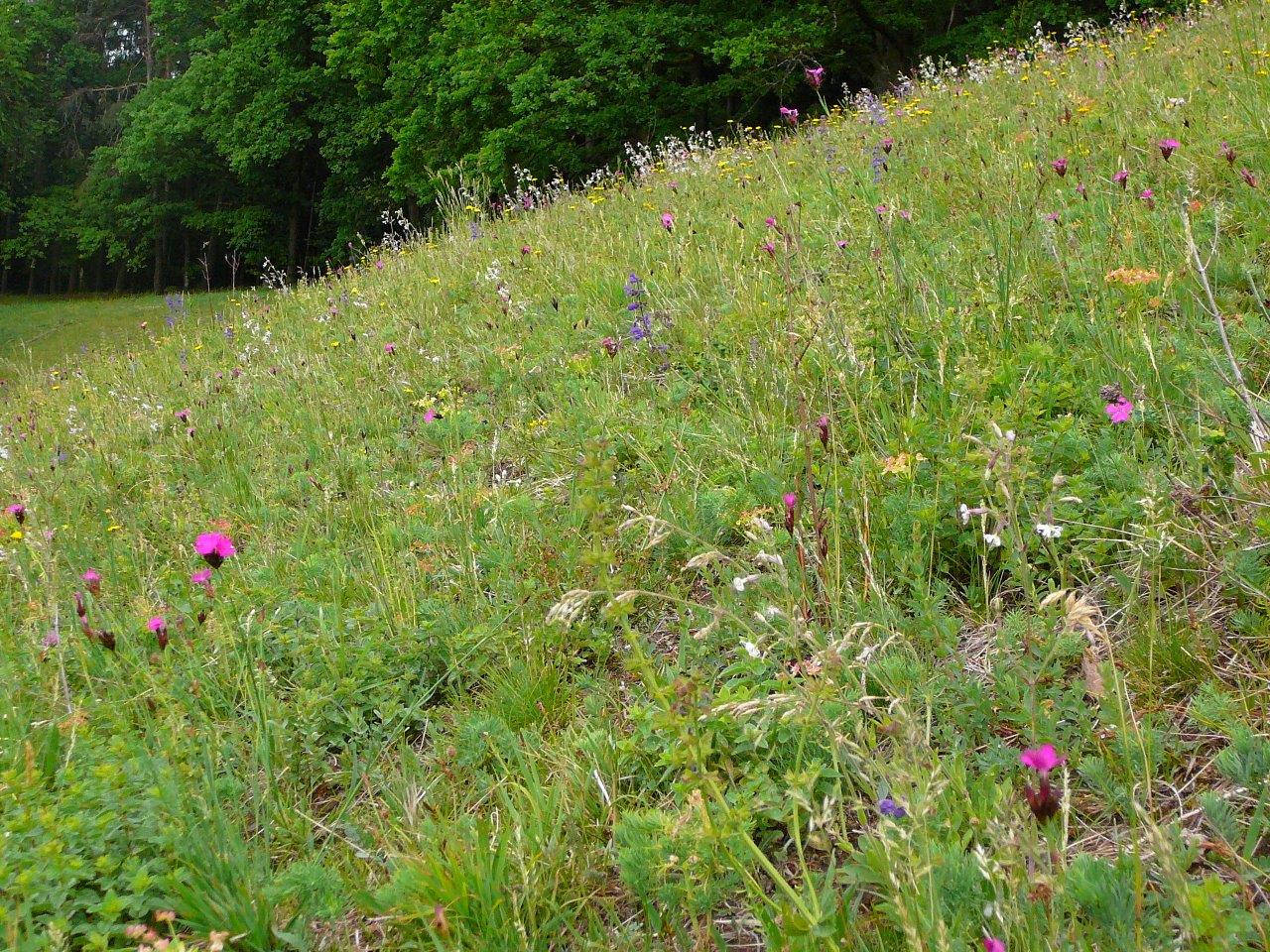
Photos: LPV Passau
Interested to join? Contact our colleagues from Passau District!
|
|
| |
 |
18th September: Dunasky luhy Protected Landscape Area, Slovakia
|
|
Volunteers and a LIFE project get active for the beetle
Only 12 mm big, very difficult to observe, and critically endangered: together with volunteers (mainly from local companies), habitats of Bolbelasmus unicornis will be managed.
This action is the kick-off for large scale follow-up conservation actions which should take place within a LIFE+ project for this species, therefore, experts from BROZ, CSOP Onyx and Jihomorvaský kraj will actively participate and can give you first-hand information.
Interested to join? Contact our colleagues from BROZ!
|
|
| |
 |
20th september: Duna-Ipoly National Park, Hungary
|
| |
|
Priority habitats close to Budapest: a showcase for the role of volunteers
The Duna-Ipoly National Park has chosen a Pannonic Sand Steppe on the Szentendrei Island for the 1st Danube Volunteers Day, due to its status as priority habitat type of the EU´s habitat directive. Already in the previous years, the National Park administration was active to manage this site, but the support by volunteers should raise the efficiency of these measures and should contribute to raise the awareness for the natural values in close vicinity to the city of Budapest.
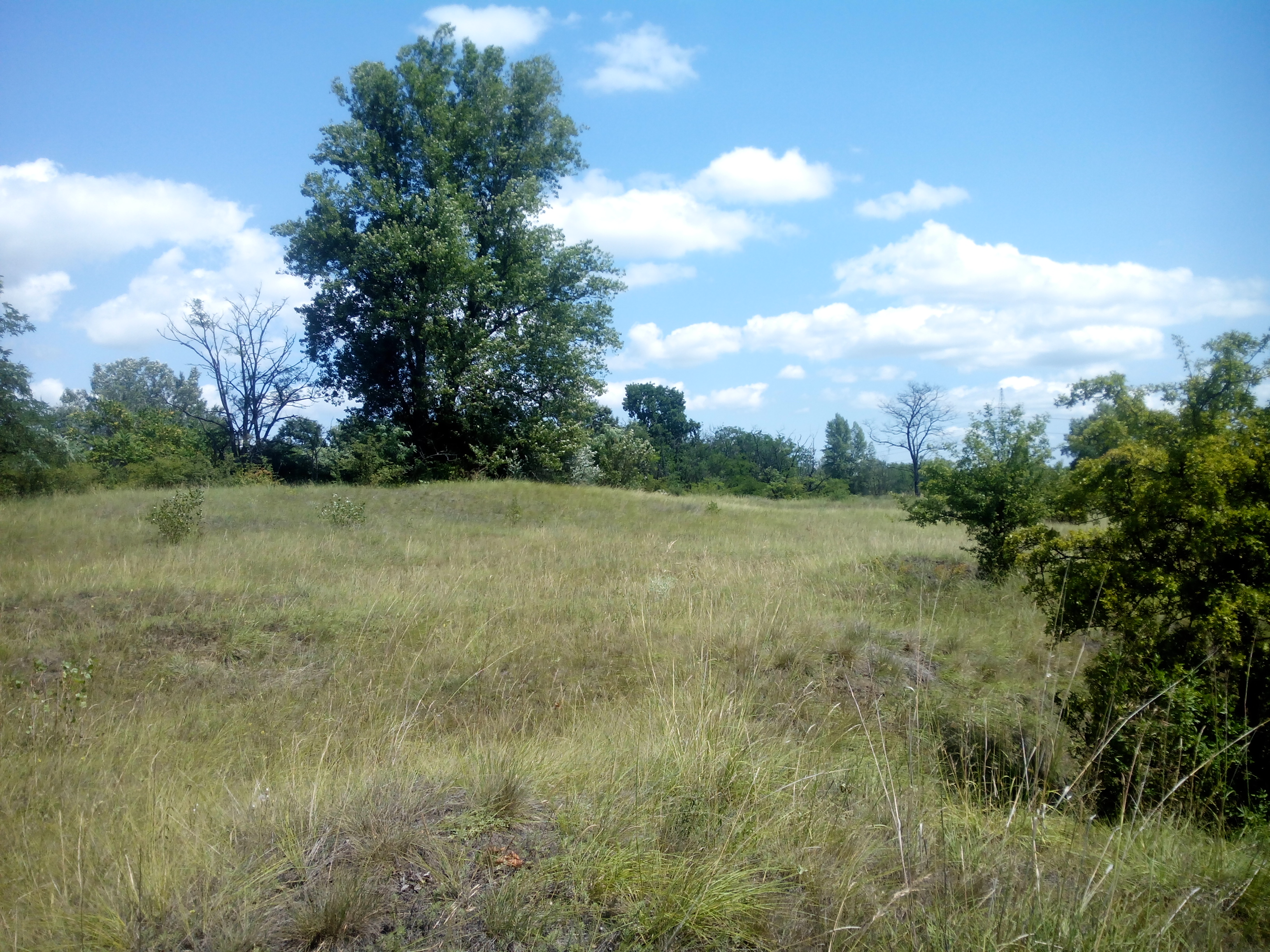 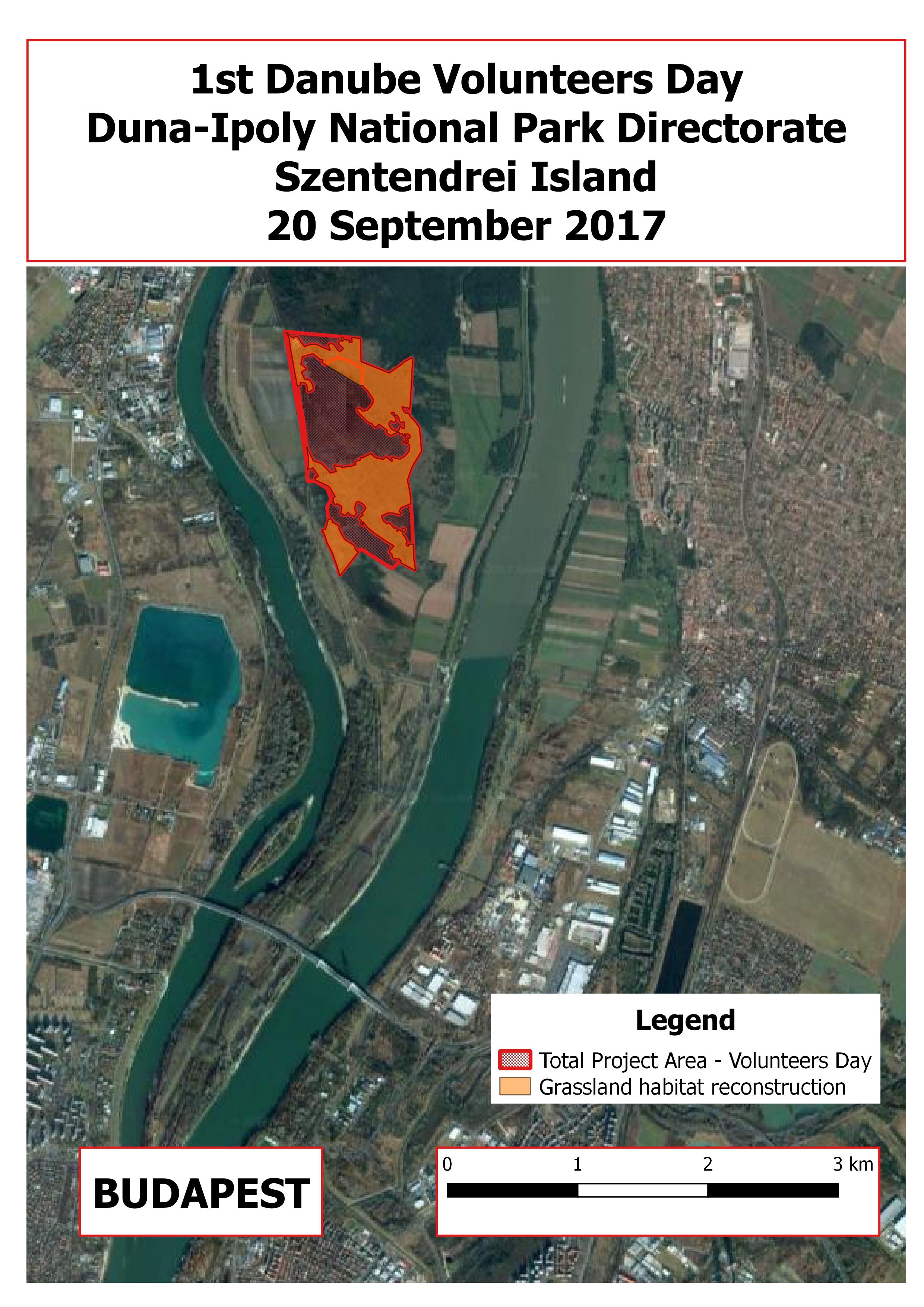
Photo: DINPI
Interested to join? Contact our colleagues from Duna-Ipoly National Park!
|
|
| |
 |
22nd September: Fertö-Hansag National Park, hungary
|
| |
|
In the Upper-Szigetköz area, Dunasziget area, volunteers will work on semi dry grassland restoration. Extermination of invasive species with different handtools and minimalization of the forest cover in the area (cutting pioneer bushes), are on the programme.
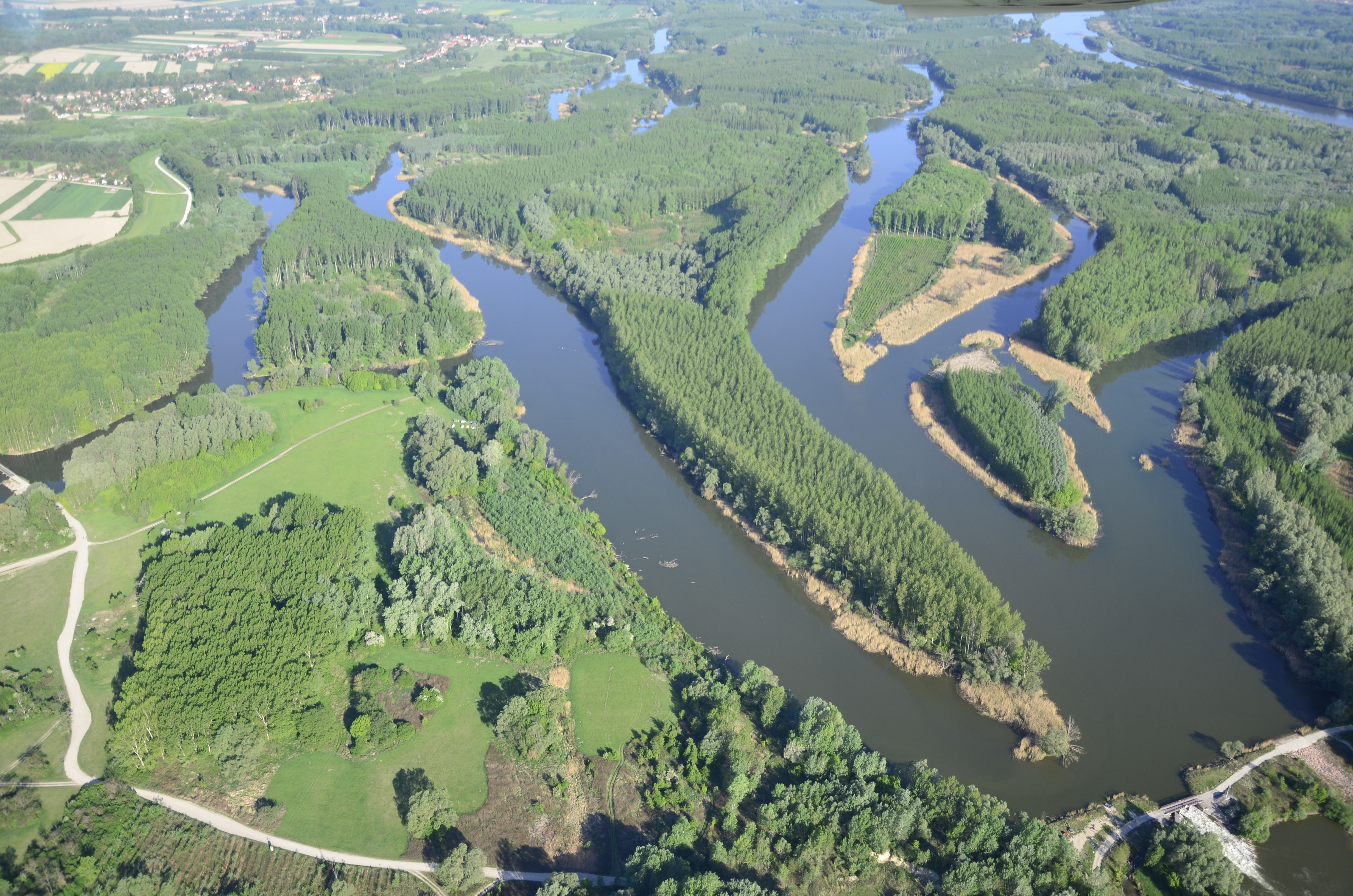
Photo: FHNPI
Interested to join? Contact our colleagues from Fertö-Hansag National Park!
|
|
| |
 |
23rd september: Danube-Drava National Park, Hungary
|
| |
|
The volunteer action will be organised within Duna-Drava National Park in Szeremle village, just south to Baja town. The aim of the action is to control alien, invasive species within the protected area. In this case, Amorpha fruticose will be removed from wooded pasture to keep the grassland open. Avoiding the use of chemicals it should be removed manually, which needs a lot of people to work, so the involvement of volunteers will be a great help.
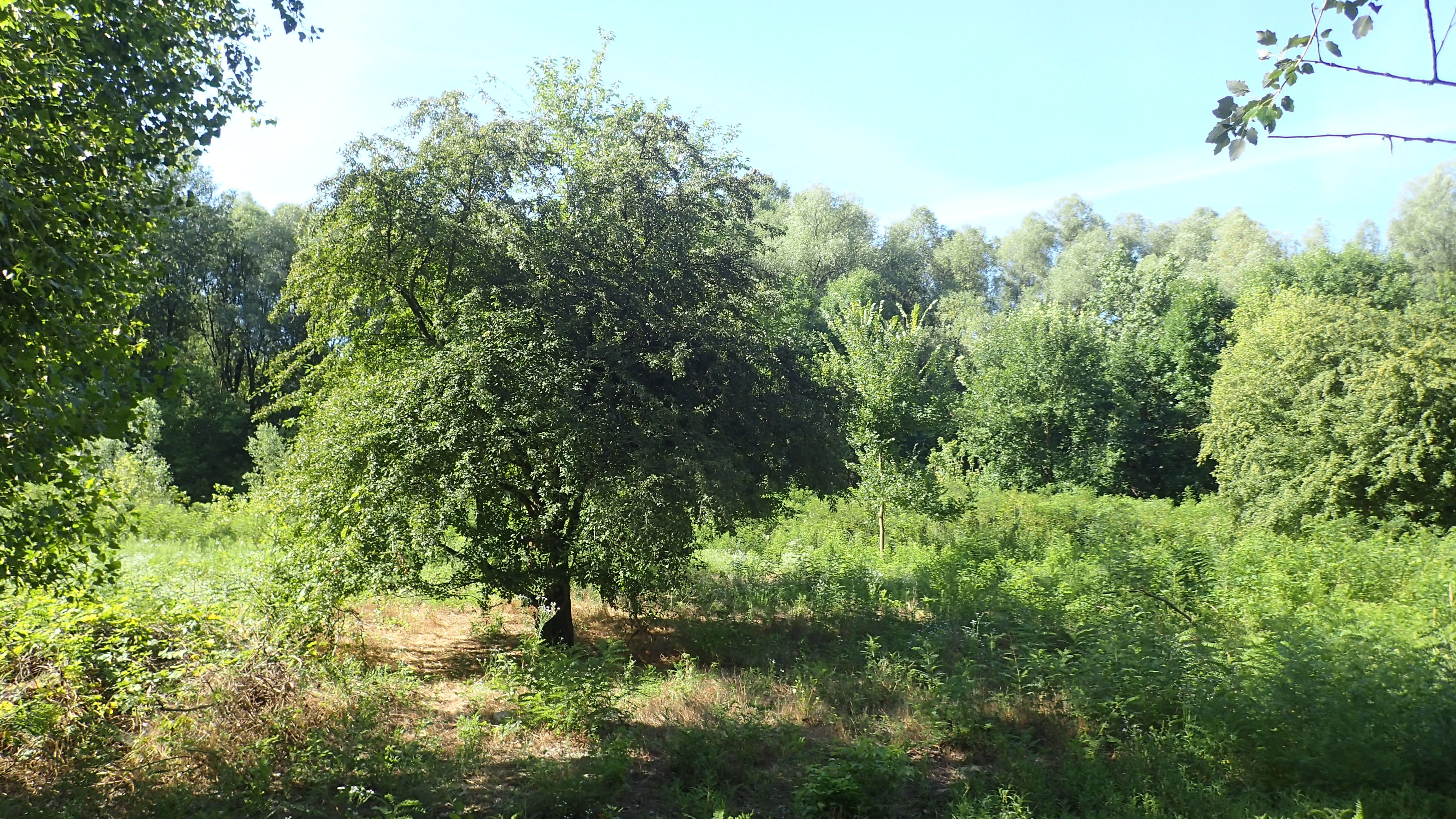
Photo: DDNPI
Interested to join? Contact our colleagues from Duna-Drava Nationa Park!
|
|
| |
 |
28th September: Rusenski lom Nature Park, Bulgaria
|
| |
|
The values of the dry grasslands in the Rusenski lom Nature Park exists thanks to the traditional land use and mowing techniques in the past. Today, most of the local population is not interested to work in agriculture anymore. Some lands are industrially managed, huge fields of grain and corn, but some, as meadows, are mostly deserted. Those places brought different species, bushes even forests, which brings the dry habitats and the biodiversity of the area in danger. Therefore, the 1st Danube Volunteers Day addresses agricultural schools to participate and to manage grasslands in a traditional way. Managing important sites and, at the same time, sharing know-how with the next generation.
Interested to join? Contact our colleagues from Rusenski lom Nature Park!
|
|
| |
 |
28th September: State Nature Conservancy of the Slovac Republic, Slovakia
|
| |
|
Volunteer work with students on the Island of Kopáč near Bratislava - Helping to manage and understand!
Student volunteers from the Faculty of Natural Sciences of the Comenius University Bratislava and Primary school Podzáhradná located in Podunajské Biskupice district of Bratislava will work together on the site to remove invasive black pine and collect waste left by visitors and at the same time to learn about Forrest steppe Island - unique dry habitat of the Danube River.
Interested to join? Contact our colleagues from State Nature Conservancy!
|
|
| |
 |
30th september: Donau-Auen National Park, Austria
|
| |
|
Together for the habitats of charismatic bird species!
Bee Eater (Merops apiaster) and Hoopoe (Upupa epops) are flagship species for the conservation of the highly valuable grassland hills close to the National Park. Together with experts of BirdLife Austria, breeding and feeding sites will be managed; nest boxes prepared by youth groups will be installed and their surrounding habitats will be prepared for the next breeding season.
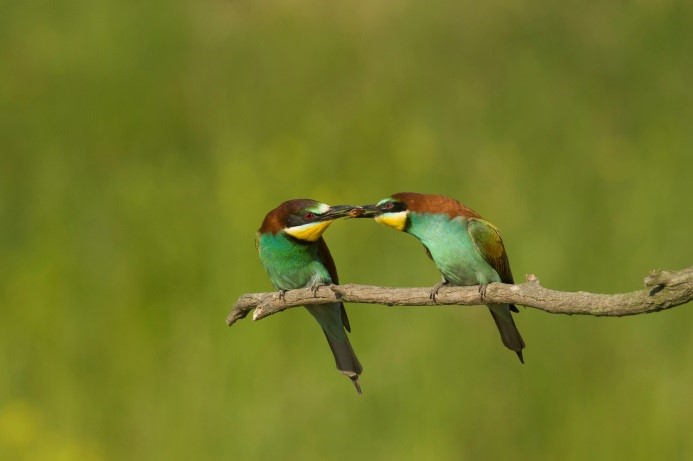 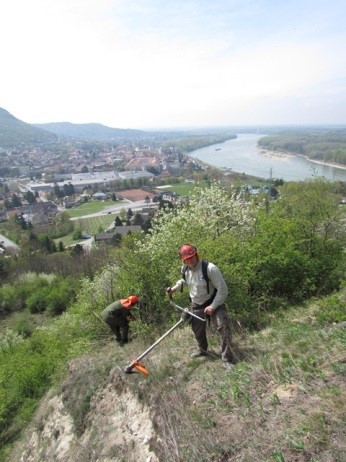
Photo: NPDA
Interested to join? Contact our colleagues from Donau-Auen National Park!
|
|
| |
 |
2nd October: Danube Delta Biosphere reserve, romania
|
| |
|
Dry habitat management in Europe's largest wetland!
Even in one of the largest wetland in Europe, the Danube Delta, the Danube River forms also dry habitats. To maintain the high habitat quality, a volunteering action will take place to remove invasive alien species. In particular school groups are invited to contribute to these efforts.
Interested to join? Contact our colleagues from Danube Delta Biosphere Reserve!
|
|
| |
 |
5th october: Gornje podunavlje, Serbia
|
| |
|
Improvement of status of plant comunities on salines in Gornje Podunavlje means removing of individual trees of undesirable/inasive plant species (hawthorn and wild pear). In this way we create better conditions for development of greenish vegetation which is endagered by spreading of invasive species which are very adaptable on current living conditions. This locality is rich in endemic, sub-endemic, relict and rare species (Cirsium brachycephalum; Puccinellia limosa; Camphorosma annua; Adonis vernalis).
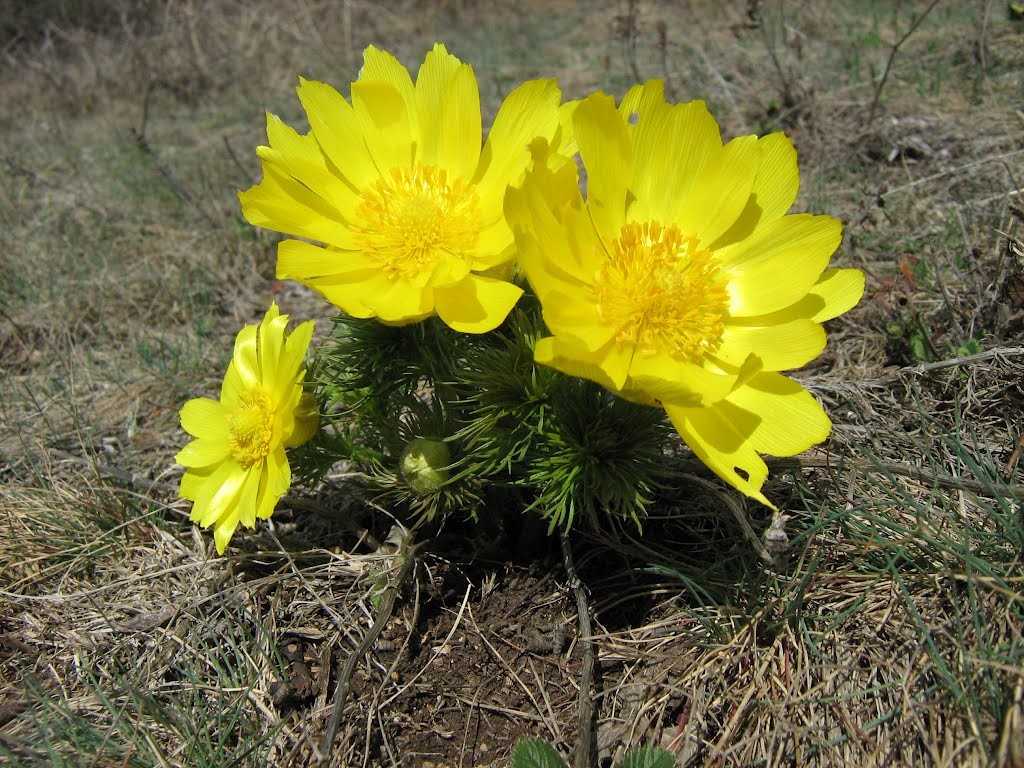
Photo: Vsume
Interested to join? Contact our Colleagues from Vojvodinasume Public Forest Enterprise!
|
|
| |
 |
21st October: Neuburg - Ingolstadt, germany
|
| |
|
The City of Ingolstadt and district of Neuburg-Schrobenhausen will organise their Volunteers activity together in the area north of the Danube river. More details will follow soon!
Interested to join? Contact our collaegues from the City of Ingolstadt!
|
|
|
|
|
| |
|
If you have received this newsletter, you have been included on one or more of the Danube Transnational Programme/projects postal mailing lists. We are committed to respect and protect the privacy of personal data collected. We regard your personal data as confidential information and will never communicate it to third parties. Your personal data are used mainly for the express purpose of receiving the newsletter. Your mailing details may also be used by the DTP and its projects for information and dissemination purposes strictly related to the programme and its projects. If you prefer not to receive more of this newsletter and your data not to be used for dissemination purposes, you can unsubscribe by sending a reply email.
|
|
|
|
|
|
